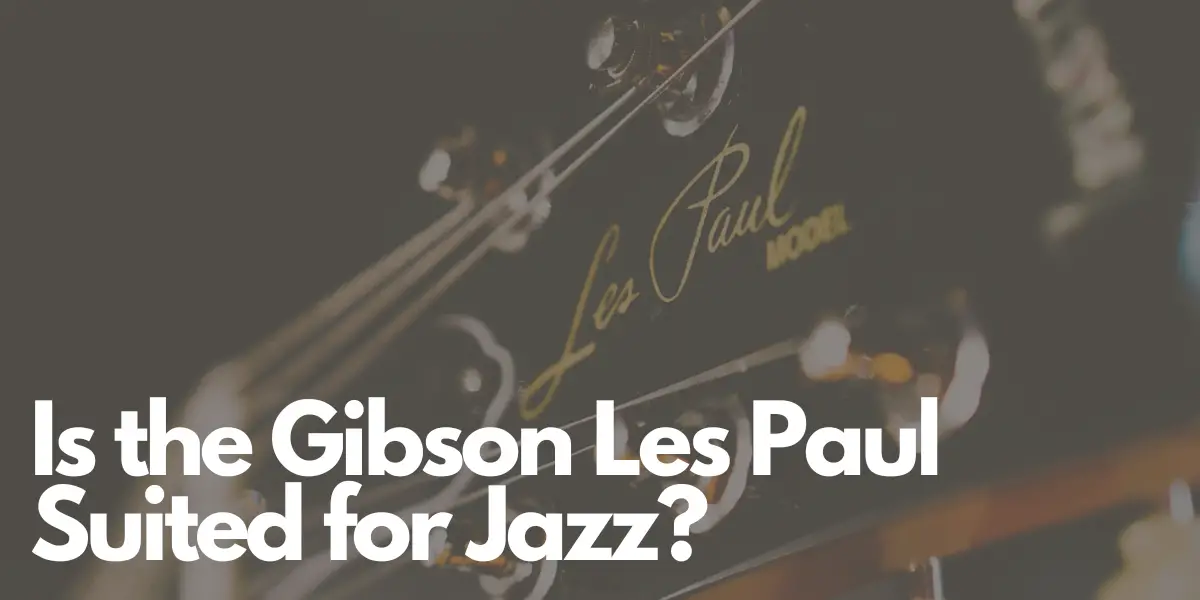The world of guitars is vast and varied. Within this universe, the Gibson Les Paul stands as an iconic model. Renowned for its versatility, the question arises: Is it apt for jazz?
A Glimpse into Traditional Jazz Guitars
When you think about jazz guitars, the image that probably pops into your mind is that of hollowbody or semi-hollowbody guitars with archtops. Why? These specific guitar types are known to deliver a distinct warmer, mellow sound, which has become synonymous with the traditional jazz tone.
The Les Paul’s Unique Composition
Unlike the conventional jazz guitars, the Gibson Les Paul is a solidbody guitar. What does this mean? It means it’s carved from a single piece of wood. Accompanied by its two humbucker pickups, the Les Paul is capable of producing a sound that is powerful, assertive, and yes, different from the usual jazz guitars.
Jazz Giants and the Les Paul
Despite its divergence from the traditional jazz tone, the Les Paul has not been ignored by jazz maestros. Renowned artists like Pat Metheny, John Scofield, and even the legendary Wes Montgomery have strummed its strings. Their music testifies to the fact that the Les Paul, in the right hands, can produce a spectrum of jazz sounds. Whether you’re aiming for a clean, mellow tone or something more rugged and intense, the Les Paul can deliver.
The Sound of Jazz: Personal Choices
When it comes to jazz, or any music genre for that matter, the sound is a matter of individual taste. While some purists may lean towards the classic, warm tones of traditional jazz guitars, others might be enamored by the robust and edgier tones the Les Paul offers.
Making the Les Paul Sing the Jazz Tune
Interested in using a Les Paul for jazz? It’s all about tweaking and experimenting to find your desired tone. Here are a few guidelines to help you on your journey:
- Warm it up: Using the neck pickup and turning down the tone knob can give you that sought-after warm, mellow jazz tone.
- Amp it right: Opt for a clean or just slightly overdriven amplifier setting. This helps in keeping the tone pure and rich.
- The gain game: Be cautious with the gain. Too much of it, and you risk entering a territory that’s too abrasive for jazz.
- Strings matter: Considering flatwound strings is a good idea. They are known to offer that warm sound jazz enthusiasts often chase.
- Experiment: The key to perfection is experimentation. Play around with different pickup and amp settings until you strike the right chord, metaphorically and literally.
In Conclusion
For those jazz aficionados seeking a guitar that can traverse a plethora of sounds, the Gibson Les Paul is certainly worth a shot. It might not be the quintessential jazz guitar, but its adaptability makes it an intriguing choice. Remember, the right sound is the one that resonates with you. So, keep experimenting until you find your perfect jazz tune with the Les Paul.
Author: Mike P
Hi! My name is Mike! I’ve been an apartment producer/musician for 10+ years. I’ve played in punk bands, released EDM tunes on Beatport and iTunes, and have a semi-successful stock music portfolio. Read more…


